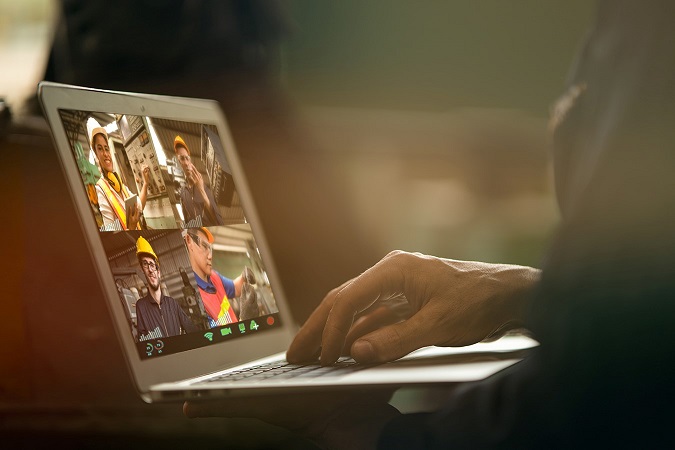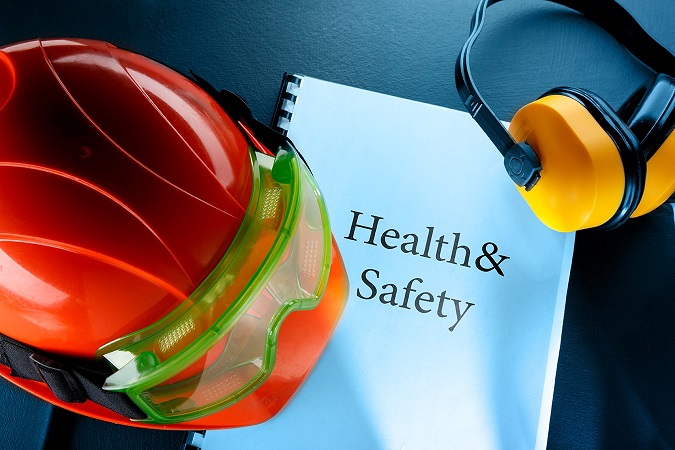The time is upon us when organizations are holding their seasonal Safety Stand Down meetings. The Office of Facility Management has provided supportive content for all organizations to have those conversations, reinforcing issues of safety in the workplace. Safety Stand Down meetings have been in existence at the Aeronautical Center for 9 years. The content can be modified and customized to fit specific organizational needs.
 New way of working with the world-wide pandemic
New way of working with the world-wide pandemic
While any safety concern is a welcome topic, the topics provided for this session include Operational Controls (Slips, Trips and Falls, Solid Waste Generation, Universal Waste Generation and Energy Consumption) and several informational briefings on the subjects of Environmental Occupational Safety and Health management systems (EOSH) Knowledge Sharing Network (KSN) Walkthrough, Occupational Safety and Health (OSH) Risk Assessments, Return to Work protocols and Addressing Medical Emergencies during a Virtual Meeting.
No matter how your team conducts these briefings, the goal is to have open discussions about safety issues, procedures, and equipment, understanding emergency rescue plans and talk about specific job hazards. This is an ideal time to converse about hazards, protective methods, safety policies, goals and expectations that exist in the workplace and in our telework environments.
Teams should have discussions about operational controls periodically, at least two times a year. Members from the Facility Management team update these controls as needed and the topic is common to most all organizations.
- Slips, Trips and Falls
- Examine trip hazards from equipment, tools, cords, stairs, curbs, uneven surfaces, etc.
Be aware of slip hazards from wet floors, ice on the ground, leaking equipment, etc.
- Inspect the use of stairs, entrance stairs and ramps (indoors and outdoors)
- Be aware when walking in hallways, offices, shops, tunnel areas & other indoor level surfaces
- Solid Waste Generation
- Solid waste involves the generation of waste paper, toner cartridges from office or industrial activities.
It also includes the generation of other used products e.g. aluminum cans, plastic bottles, and cardboard. Solid waste takes into consideration, pallets, crates, cardboard & packaging materials used to transport & store items, as well as purchasing office paper.
- It is important to become aware of the Aeronautical Center’s Recycling program which includes printer toner cartridges, metals, plastics and cardboard. Organizations are encouraged to purchase environmentally friendly products (e.g. 30% recycled office paper).
- Universal Waste Generation
- Employees should understand proper disposal of used batteries, lamps, mercury thermostats and other devices containing mercury.
- All used batteries will be returned to AMP-100 for disposal in accordance with the MMAC Waste Generator Management Manual procedures. Collections for disposal will occur every six months.
- Energy Consumption
- Annual reminders will be provided to employees concerning building lighting, operation of office equipment, heating & cooling of buildings, use of personnel appliances (e.g. space heaters, refrigerators, fans, coffee makers, etc.)
- Employees should be reminded annually of energy conservation measures.
Even though many are working in mandatory telework status, the need to secure lighting, computers, printers, office equipment & other equipment to the greatest degree practical after working hours on weekends, & on holidays still exists.
Employees should be vigilant in turning off lights, office equipment in classrooms, conference rooms & other common use areas whenever unoccupied.
 Safety goggles, ear protection and red helmet
Safety goggles, ear protection and red helmet
- It is important to be mindful when using common-use areas (instead of personal space) for use of refrigerators, microwave ovens, coffee pots, etc.
- As a reminder, any decorative lighting or personal plug devices are prohibited in office spaces.
Each of us have a responsibility to be good stewards of the land and environment. Participating in the Center’s Safety Stand Downs contributes to our awareness and reinforces important safety and conservation issues in our workplace and home.
To learn more about the Safety Stand Down, you can review the Safety Stand Down Team Charter. Remember to report any safety issues to the Office of Facility Management (AMP-300) Trouble Desk (405)954-3687